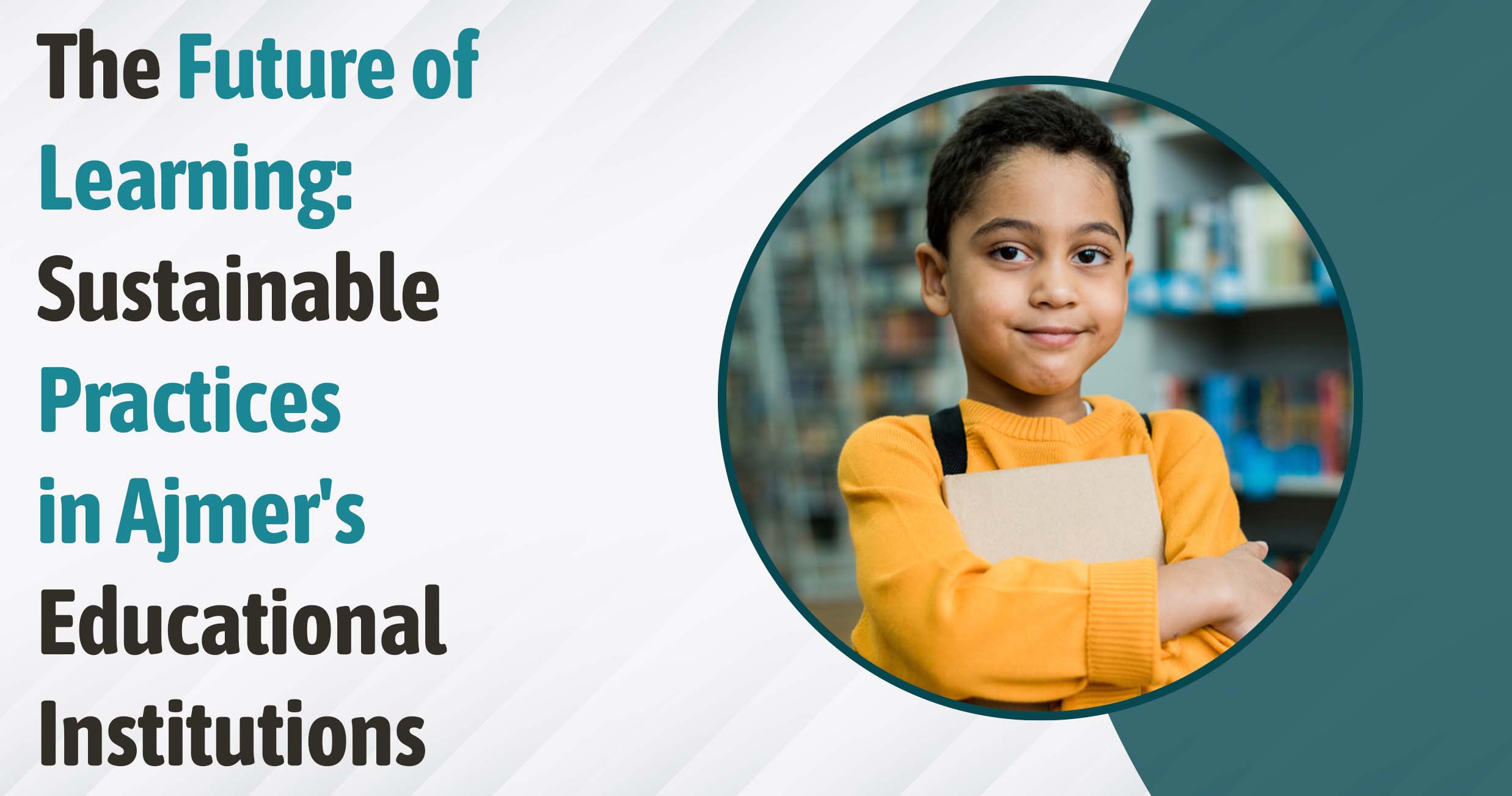
Schools are evolving in the 21st century, with a greater emphasis on sustainable education. Ajmer, a culturally wealthy and modern city, is at the forefront of this transformation. Students are being prepared for a future in which the planet is taken care of by the eco-friendly practices of the local institutions. Teachers ensure students acquire the knowledge necessary to safeguard the Earth for future generations. Let us check out how the green schools in Ajmer educate students on environmental awareness, thereby setting a precedent for others to follow.
Schools in Ajmer are emphasizing eco-friendly practices in education. Environmental Science is now compulsory in almost all schools. Students engage in activities such as monitoring plant and animal life and developing strategies to conserve water. Teachers encourage students to engage in critical thinking by teaching them to generate solutions to climate-related issues.
These techniques ensure that environmental education is not solely derived from texts but also from practical experiences. Schools require students to engage in refuse sorting, tree planting, and pollution education. These learning experiences establish a foundation for environmental education, equipping students with the necessary ideas to address environmental challenges.
Numerous schools in Ajmer are utilizing eco-friendly building designs to transform their structures into sustainable foundations. They’re putting in solar panels to use power from the sun for school activities. They are establishing systems to collect precipitation to conserve water and prevent waste. They are constructing gardens and outdoor spaces to facilitate the growth of plant and animal life and provide fresh air.
These structural modifications are not solely for aesthetic purposes. Students are presented with actual examples of sustainable practices in schools. The students can observe the benefits of sustainable resource management and the utilization of solar power. This learning environment fosters a sense of environmental responsibility in students that persists beyond the conclusion of their academic careers.
Schools in Ajmer are employing green strategies to establish a lasting impact on students’ daily lives. Schools implement the principle of “reduce, reuse, recycle” in all classrooms and activities. They advocate for the use of reusable alternatives and discourage the use of single-use plastics. Digital digital instruments, such as tablets and online teaching methods, are employed to reduce the demand for paper.
Engaging in activities outside of the classroom also reinforces these methodologies. Numerous institutions have clubs that are specifically dedicated to environmental issues. They organize cleaning initiatives, workshops, and campaigns. This ensures that students adopt green values and are equipped to make environmentally conscious decisions in the future.
Schools are collaborating with the local communities to enhance their ecological initiatives. They collaborate with local organizations to educate individuals regarding pollution, waste management, and the evolving climate. Parents are encouraged to participate in activities such as composting seminars or tree planting. Resources for green projects, such as solar lights and water-saving instruments, are obtained through business partnerships.
These partnerships fortify the connection between Ajmer education sustainability and community development. These actions that schools perform help generate a significant wave due to the involvement of numerous individuals. The entire community, not just the students, benefits from implementing green practices. The educational system is beginning to have a more extensive impact on developing environmental awareness and actions.
Numerous initiatives are being implemented by educational institutions in Ajmer to educate students about the environment. Some of these include:
Planting local trees and establishing verdant play areas are two methods for creating green outdoor spaces.
These actions demonstrate the extent to which institutions endorse environmental conservation principles. Schools are closer to the ideal equilibrium between education and environmental responsibility at every step.
Satguru International School in Ajmer exemplifies this vision of eco-friendly teaching by combining academics with green initiatives. This motivates students to develop into responsible future leaders. The school’s distinctive approach is educating a generation prepared to safeguard and nurture the Earth.